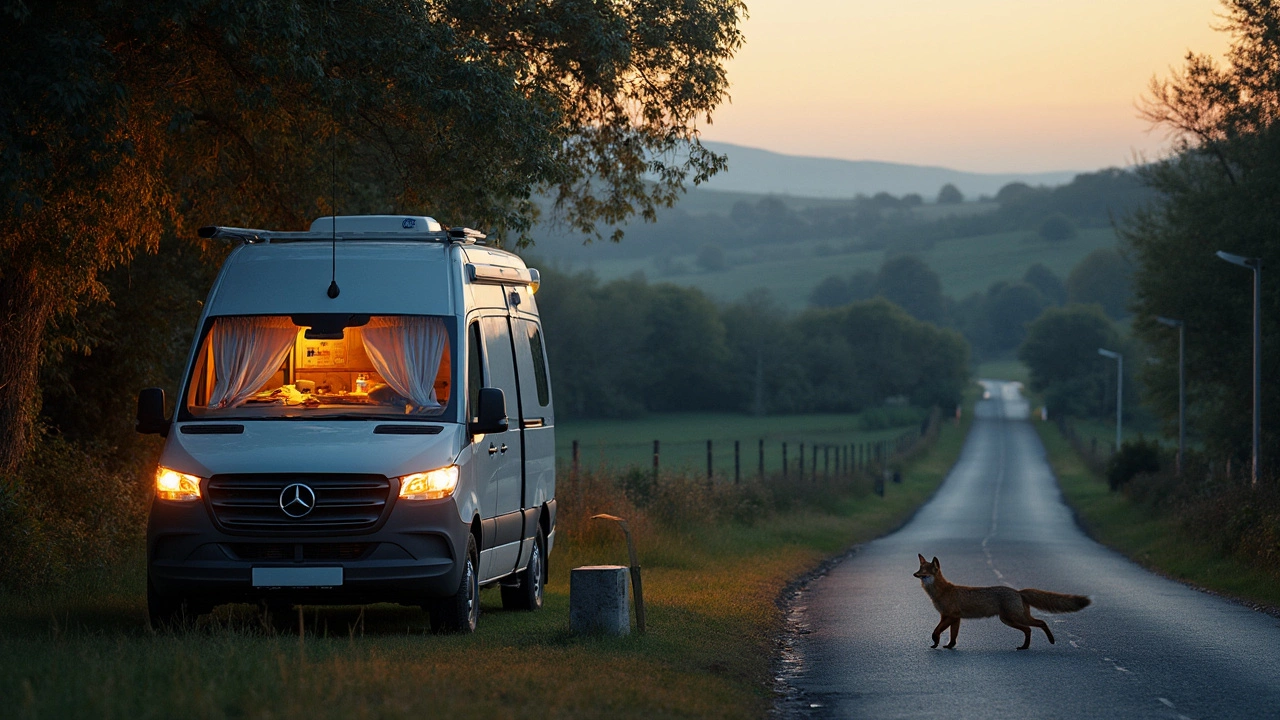Parking Overnight in the UK – What You Need to Know
If you’re cruising around the UK in a motorhome, figuring out where to park for the night is the first thing on your mind. Gone are the days of pulling over in a random field and hoping no one notices. Today there are clear rules, handy apps, and plenty of spots that let you rest without breaking the bank or the law.
Legal basics and common restrictions
First up, know that you can’t just park anywhere. Most local councils treat a motorhome as a vehicle, so you must follow the same rules as a car. This means no parking on private property without permission, no overnight stays in public car parks that are marked ‘no overnight parking’, and no camping on public roads unless the sign allows it. If you’re unsure, look for signs that say ‘restricted hours’ or ‘resident only’. Ignoring these can lead to fines or a polite request to move.
In England, Scotland, Wales and Northern Ireland the law differs a bit, but the core idea is the same – you need the landowner’s consent. Many motorhome owners use the term ‘overnight parking’ to avoid the word ‘camping’, because camping often has stricter rules. When you see a sign that says ‘overnight parking only’, that’s a green light. If the sign is missing, treat it as a no‑parking zone.
Top places to park your motorhome for free or low cost
Now for the good part – where to actually stop. Whole‑sale supermarkets like Tesco, Sainsbury’s and Asda often allow overnight parking in their car parks if you ask the manager. They appreciate the extra foot traffic and usually won’t mind a quick 12‑hour stint. Just be respectful, keep noise down and leave the space clean.
Service stations on motorways are another solid option. Many have dedicated motorhome bays with hook‑ups for electricity and water. They’re built for travelers, so you’ll find 24‑hour security and easy access to food. Some may charge a small fee, but it’s often cheaper than a campsite.
If you love nature, look for B&Bs or small farms that offer ‘overnight parking’ for a few pounds. They love the extra income and you get a chance to chat with locals. Websites and apps like Park4Night and AllStays list these hidden gems, complete with user reviews and exact addresses.
Don’t forget about “park and ride” lots in larger towns. While most are meant for commuters, many allow overnight stays if you’re not taking up a space for more than 12 hours. Check the local council website before you go, because rules can change seasonally.
Finally, some council‑run car parks in scenic areas let you park overnight for a modest fee. They usually have clear signage, lighting and sometimes even waste bins. Paying a few pounds can give you peace of mind and keep you out of trouble.
Regardless of where you stop, always lock your doors, store valuables out of sight, and leave no trace. A tidy spot makes it easier for everyone to keep overnight parking available.
With these basics in mind, you’ll spend less time hunting for a spot and more time enjoying the open road. Happy parking!
Is It Illegal to Sleep in the Back of a Van in the UK? Straight Answers for Vanlifers
Thinking about catching some sleep in the back of your van in the UK? This article clears up whether it's allowed, where and when you can do it, and how to stay on the right side of the law. Get concrete advice on choosing legal spots, understanding grey areas, and avoiding common slip-ups. Learn insider tips that only regular van dwellers know. Make your UK vanlife safe and hassle-free.
